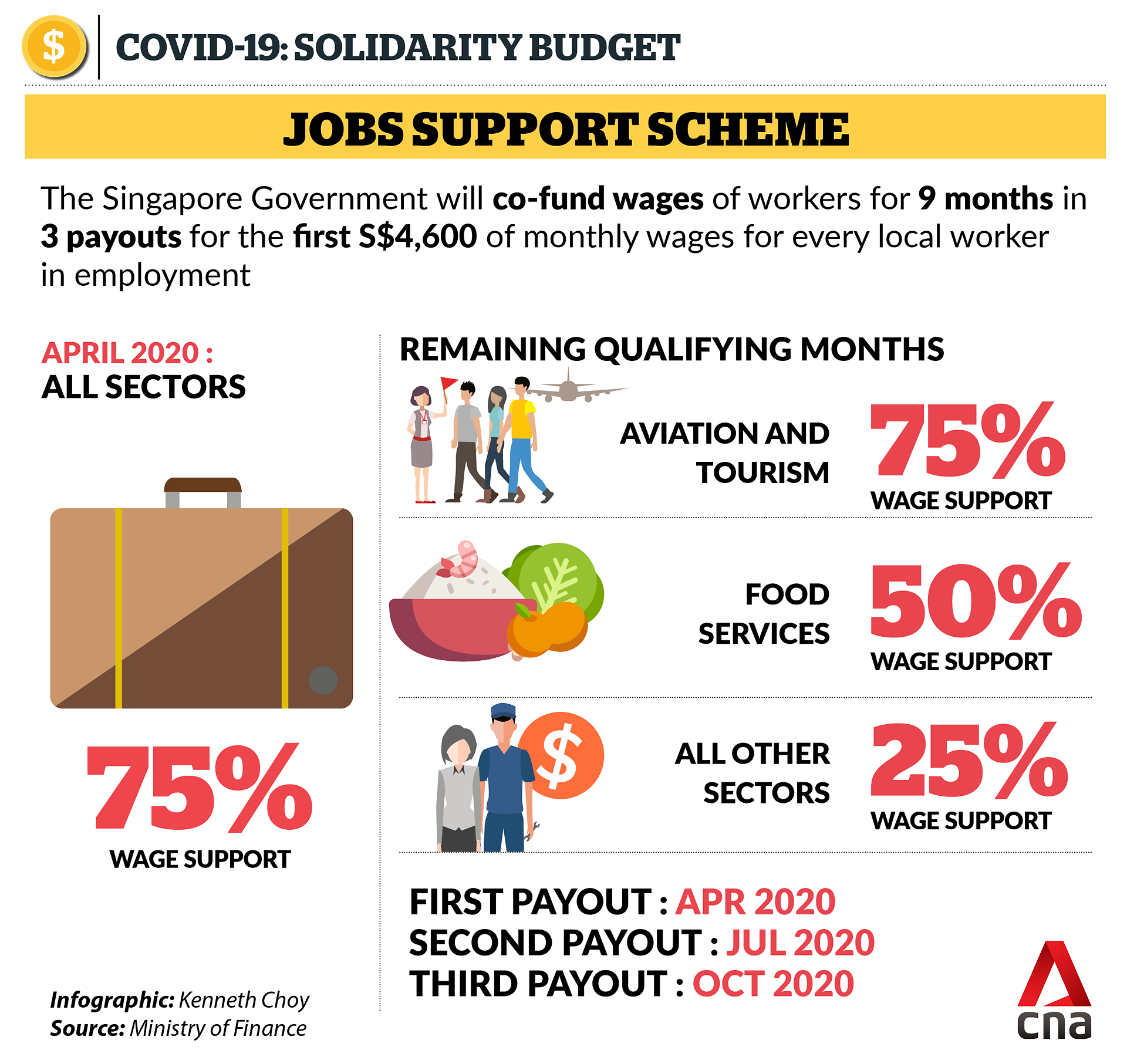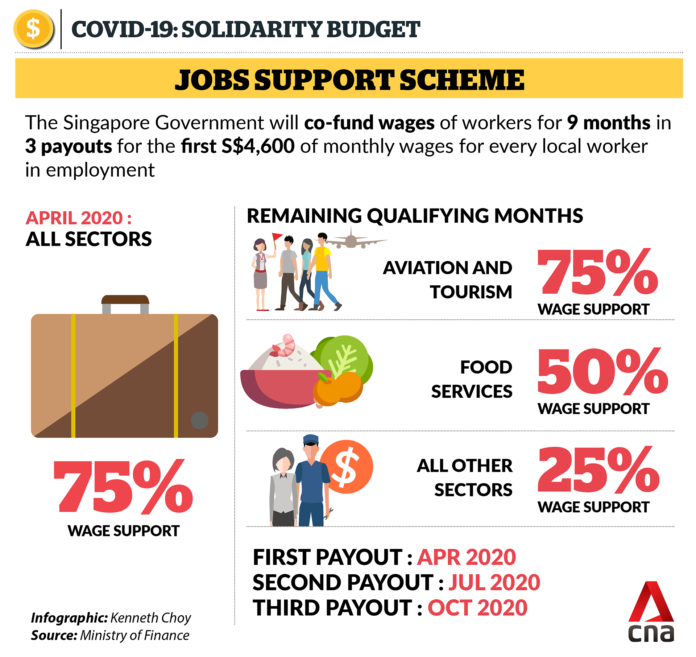SINGAPORE: Workers’ Party (WP) chief Pritam Singh called for “a thorough review of what a living wage in Singapore ought to be” for Singaporeans, following the announcement of the Solidarity Budget on Monday (Apr 6) in response to the COVID-19 pandemic.
Speaking in Parliament, Mr Singh and other WP Members of Parliament (MPs) expressed their support for the Budget, but called for the Government to examine the long-term effects of the COVID-19 pandemic beyond the next nine months.
The COVID-19 pandemic has exposed sectors that could be manned by more Singaporean workers in the future “for better resilience and national outcomes”, said Mr Singh.
“A thorough review of what a living wage in Singapore ought to be for Singaporeans who man our critical infrastructure and keep the country’s hearts beating would also be appropriate and timely, the same way strengthening our food security and critical supply chains are.”
READ: Solidarity Budget – S$600 cash support for all adult Singaporeans, other cash payouts to be brought forward to June
Mr Singh also noted that Singapore’s “army of cleaners” and the local cleaning companies also deserve recognition and support.
“Singapore owes them a debt of gratitude in this difficult period and it is time our workers who keep Singapore clean up are paid far more respectable wages, with Singaporeans ready to play their part too,” he added.
“I don’t think many of us truly appreciate how much more work they are doing trying to keep our HDB estates clean, while continuing to clear garbage and bulky items and keeping to their daily routines.
“But that is not all. It is the respect all of us must extend to them and all those who earn an honest living that matters so much in shaping the type of progressive society we aspire to be. Only then can we say we are a people who leave no one behind.”
Noting Monday news reports, Mr Singh also said that the living conditions of some foreign workers “is a stain on Singapore and Singaporeans”
“Unless we act decisively in the days, months and years ahead, this stain will not go away. And it will eat at our collective conscience, damaging our sense of national unity and solidarity.”
READ: Singapore sees record daily spike of 120 COVID-19 cases, ‘significant number’ linked to worker dormitories
ENCOURAGING EMPLOYER RESPONSIBILITY
MP Sylvia Lim also sought clarification on how the Job Support Scheme which was announced would directly benefit workers, since the wage offsets are paid to employers rather than employees.
She noted that Deputy Prime Minister Heng Swee Keat has urged employers who benefit from the scheme to hold onto their workers.
However, many employers had already asked employees to take no-pay leave or salary cuts before the scheme was announced, Ms Lim said.

“For instance, some airline staff had been asked to go on no pay leave for varying periods,” she added.
“With airlines now getting 75 per cent wage offset from the taxpayers, is there any obligation on employers to review these no-pay leave arrangements reached earlier to see if they are still justified after the wage offsets?”
While she acknowledged that employers “have to make tough choices”, Ms Lim noted that Mr Heng had said in his speech that he hopes companies that receive support will use the resources wisely and responsibly, and that “the government will not hesitate to take action against any abuse”.
“In the context of the job support scheme could the minister clarify what would constitute abuse by an employer?” asked Ms Lim.
READ: Solidarity Budget – Jobs support raised to 75% for April, payout brought forward
Questioning if the schemes announced in the Solidarity Budget will represent “a new normal”, Mr Singh asked if there will be continued support for Singaporeans whose jobs have been disrupted by technology, even after the package expires.
After the COVID-19 pandemic, the long-term needs of Singaporeans must be addressed “in a sustainable and equitable manner”, said Mr Singh.
“Today we are witnessing the threats of a pandemic to both livelihood and life itself, and so we must question its long term impacts on the economic and even psychosocial needs of our citizens.”
Adding that WP will “play its role” in these debates, he said: “To this end, our reserves and the prospect of taxes should continue to be robustly debated and considered in a detailed manner.”
BALANCING THE BUDGET IN THE NEXT GOVERNMENT TERM
Mr Singh also questioned how the Government will balance the Budget in its next term if resilience “is going to be a longer-term issue” that lasts up to five years, and major economic restructuring is required.
“Would we need to adopt belt tightening austerity measures to balance the Budget? Can we afford to tighten the belt?
“And do we need to adopt a different stance towards the reserves, debt financing and deficits?”
Adding that a Government drawing on the reserves in its first year of the new term would be unprecedented, he stressed that this may be the case if additional support is rolled out in the coming months.
Referencing former American president Franklin Roosevelt’s series of financial reforms in the 1930s following the Great Depression, Mr Singh added: “Rather than focus on the timing of general elections, I think the public debate will be better focused on the choices before us, whether the resilience and solidarity budgets are the shape of a New Deal for Singapore? A new social compact for Singapore?
“How are we going to renew, rebuild and reinvigorate our economy and society after the storm has passed and the dust settles?”
READ: Solidarity Budget – Singapore spends another S$5.1b to save jobs, protect livelihoods amid impending circuit breaker rules
The supplementary budgets are “anything but supplementary”, said Mr Singh, noting that they are a “comprehensive response that will save businesses and jobs”, and help lower- and middle-income households tide over the economic impact of the COVID-19 pandemic.
“It is good that the assistance quantum and the time frames for the various schemes are calibrated according to the different degrees of vulnerability faced by the target groups.”
The Government has also responded to the crisis in a timely manner, and its actions have kept the situation “largely under control”, Mr Singh also said.
“Years of preparation exercises and training in the healthcare realm, in particular, have borne fruit. However, a second phase of infections marked by first the returning Singaporeans and now by the increased community spread of the disease has proved more challenging and difficult to manage.”
Mr Singh acknowledged the efforts of “our heroes” including frontline workers such as nurses, cleaners, doctors, delivery workers and drivers.
“We should not forget our public officers too, from civil servants and teachers, to those guarding our borders and public spaces, namely our men and women in uniform.
“We must honour them for trying to allow Singaporeans to live our lives as normally as possible while keeping us safe. The same goes for every Singaporean involved in this fight. Thank you for your efforts and for the hard work,” he said.
BOOKMARK THIS: Our comprehensive coverage of the coronavirus outbreak and its developments
Download our app or subscribe to our Telegram channel for the latest updates on the coronavirus outbreak: https://cna.asia/telegram





